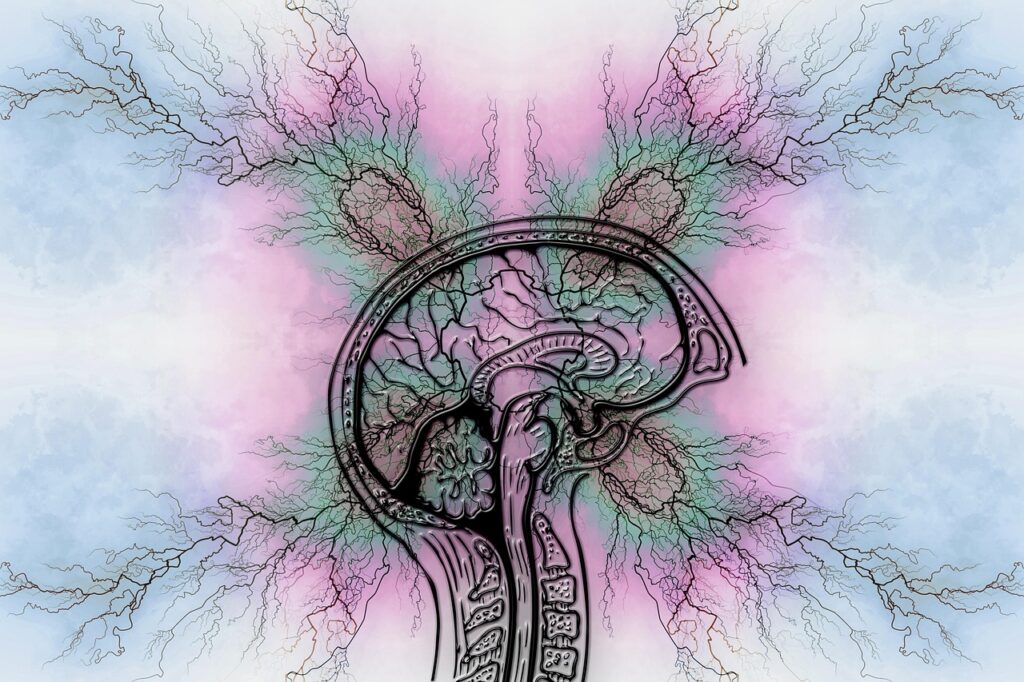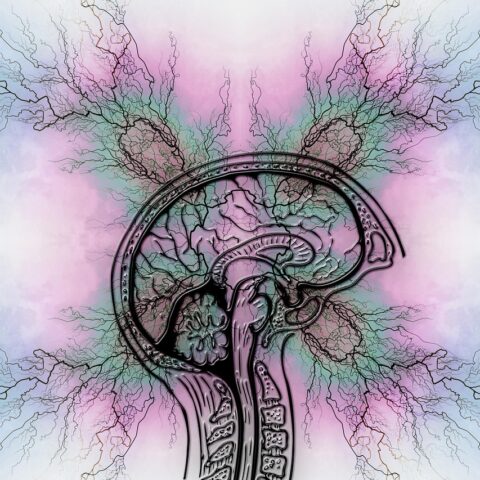Learn exactly how ADHD diagnosis works, from first symptoms to professional evaluation, with real experiences, expert research, and step-by-step guidance.
Introduction to ADHD Diagnosis

Getting an ADHD diagnosis can feel like trying to solve a puzzle while the pieces keep shifting. For many, it’s a confusing, emotional, and sometimes frustrating journey full of self-doubt, conflicting advice, and misinformation. Whether you’ve suspected ADHD in yourself or a loved one, finding clear, trustworthy information about the ADHD diagnosis process isn’t always easy.
At ADHD Goat, we know this because we’ve lived it. To create this guide, we combined insights from peer-reviewed research, professional diagnostic guidelines, and—most importantly—thousands of real-life experiences shared on Reddit, TikTok, Facebook groups, Discord servers, and ADHD support forums. This guide strips away the vague advice and gives you a step-by-step map for navigating ADHD diagnosis in the real world.
If you’re wondering, “Do I really have ADHD, or am I just lazy or overwhelmed?” — you’re not alone. Let’s unpack exactly what ADHD diagnosis involves and how to move forward with confidence.
Updated June 2o25
Table of Contents
What ADHD Diagnosis Really Means

Before we dive into the steps, let’s clear up a massive misconception: ADHD diagnosis is not simply about being forgetful, distracted, or messy.
An ADHD diagnosis requires that symptoms:
- Are chronic and pervasive
- Interfere with daily functioning across multiple life areas (work, school, relationships, home)
- Can’t be fully explained by other medical or psychological conditions
According to the Diagnostic and Statistical Manual of Mental Disorders (DSM-5), clinicians assess ADHD based on persistent patterns of inattention, hyperactivity, and/or impulsivity that have been present for at least six months.
Yet, many people describe the official diagnostic criteria as sterile and disconnected from their lived experiences. This is why so many turn to communities like Reddit’s r/ADHD to compare stories, vent frustrations, and gain clarity before and after seeking an official diagnosis.
1. Recognizing ADHD Symptoms in Yourself or a Loved One
For many adults and parents, the ADHD diagnosis journey starts with a growing sense that something isn’t adding up:
- Constant forgetfulness
- Trouble focusing even on important tasks
- Chronic procrastination
- Emotional dysregulation
- Difficulty starting or finishing projects
- Relationship strain from impulsive or inattentive behavior
- Feeling chronically overwhelmed
If you want a full breakdown of ADHD symptoms across different life stages, read our complete cornerstone guide on ADHD Symptoms.
Many adults first suspect ADHD after seeing similar struggles described on social media or support forums. A recurring theme in online communities is how invisible ADHD symptoms can be for years—especially in women, LGBTQ+ individuals, and those with high-functioning coping strategies who have unknowingly masked symptoms for decades.
2. Self-Assessment Tools: A Useful (But Limited) Starting Point
Before pursuing formal ADHD diagnosis, many people take self-assessment quizzes to gather preliminary insight.
These include:
- World Health Organization’s Adult ADHD Self-Report Scale (ASRS)
- Vanderbilt ADHD Diagnostic Rating Scales (often used for children)
- Online ADHD quizzes provided by reputable organizations
While helpful for reflection, self-assessments are not diagnostic tools. They serve as conversation starters for discussions with professionals.
For an interactive starting point, visit our companion resource on the ADHD Quiz to better understand how your symptoms may align with clinical profiles.
3. Choosing the Right Professional for ADHD Diagnosis
One of the most critical steps is finding a qualified professional who understands how ADHD presents across different ages, genders, and backgrounds. Providers who can diagnose ADHD include:
- Psychiatrists
- Clinical psychologists
- Licensed mental health counselors
- Neurologists
- Pediatricians (for children)
A recurring concern in ADHD forums is that some general practitioners may lack adequate training in nuanced ADHD diagnosis, particularly for adults and marginalized groups.
Consider seeking specialists who:
- Regularly evaluate ADHD
- Stay updated on current research
- Recognize how ADHD overlaps with anxiety, depression, trauma, and neurodivergence
In-depth resources like CHADD (Children and Adults with Attention-Deficit/Hyperactivity Disorder) provide helpful directories for locating knowledgeable providers.
4. The Diagnostic Interview: What to Expect
During an ADHD evaluation, clinicians typically conduct a structured diagnostic interview, covering:
- Developmental history (early childhood behaviors)
- Academic/work performance history
- Medical and psychiatric history
- Family history of ADHD or related disorders
- Current functioning across life domains
Clinicians will cross-check your experiences against DSM-5 criteria while also ruling out other explanations for your symptoms (ex: anxiety, depression, trauma, thyroid issues, substance use).
Many people express relief after their diagnostic interview, reporting how validating it feels to finally have their full story heard, rather than being dismissed with oversimplified assumptions.
5. ADHD Diagnosis Often Involves Input from Others
Particularly for children, teachers and parents may be asked to complete behavioral rating scales like the Vanderbilt ADHD Diagnostic Rating Scale to provide a full picture across settings.
Even for adults, input from spouses, roommates, or close family members can help professionals assess how symptoms present in daily life. ADHD rarely exists in a vacuum—it often leaves a noticeable ripple effect across relationships.
For a deeper dive into how these assessments work, visit our breakdown on the Vanderbilt ADHD Assessment.
6. Rule-Outs: Ruling Out Other Conditions Before ADHD Diagnosis
One of the most important — and often overlooked — steps in ADHD diagnosis is properly ruling out other conditions that can mimic or overlap with ADHD symptoms. Professionals call this differential diagnosis.
Common conditions that share overlapping symptoms include:
- Anxiety disorders
- Depression
- Bipolar disorder
- PTSD and trauma histories
- Learning disabilities
- Thyroid dysfunction
- Sleep disorders
In Reddit ADHD communities, many people share stories of being misdiagnosed for years because their ADHD symptoms were initially chalked up to anxiety or depression alone. This highlights why comprehensive evaluations are critical — not every distractible, forgetful, or emotionally overwhelmed person has ADHD.
For a thorough comparison of ADHD vs. co-occurring mental health conditions, visit our related article on ADHD and Bipolar Disorder.
7. The Growing Recognition of Adult ADHD Diagnosis
For decades, ADHD was primarily seen as a childhood disorder. But research now shows that for many, symptoms persist well into adulthood, often shifting in presentation.
According to a 2021 review in The American Journal of Psychiatry, up to 60% of children with ADHD continue to meet diagnostic criteria as adults, while many adults are diagnosed for the first time later in life after years of compensating without realizing it.
Common adult ADHD signs include:
- Chronic disorganization
- Missed deadlines
- Emotional volatility
- Career instability
- Relationship conflicts
- Persistent inner restlessness
One of the most frequently upvoted comments in r/ADHD captures this realization:
“Getting diagnosed at 34 felt like finally reading the instruction manual for my own brain.”
8. ADHD Diagnosis in Women and Marginalized Groups
ADHD diagnosis has historically been biased toward hyperactive male presentations. As a result, many women, LGBTQ+ individuals, and BIPOC ADHDers experience delayed or missed diagnosis entirely.
Community members regularly share how their symptoms were minimized as:
- “Just anxiety”
- “Being dramatic”
- “Normal hormonal mood swings”
- “Poor discipline”
Emerging research in Journal of Women’s Health emphasizes how inattentive-type ADHD, emotional dysregulation, rejection sensitivity, and masking behaviors are especially common among women and LGBTQ+ individuals.
Accurate ADHD diagnosis requires providers who understand these diverse presentations.
9. Neuropsychological Testing: Is It Always Required?
Some individuals assume that formal neuropsychological testing is necessary for ADHD diagnosis, but in most cases, a thorough clinical interview combined with validated rating scales is sufficient.
Neuropsychological testing may be recommended when:
- The clinical picture is complex or unclear
- Co-occurring learning disabilities are suspected
- School accommodations require detailed documentation
Many adults pursue private neuropsychological evaluations to clarify long-standing questions about executive function, working memory, and cognitive processing speed.
However, multiple ADHDers on TikTok and Reddit emphasize that costly testing isn’t always necessary for valid diagnosis — especially if clear symptom patterns have persisted since childhood.
10. Getting an Accurate ADHD Diagnosis as Quickly as Possible
Frustration over long waitlists and inaccessible providers is one of the most common themes in ADHD forums. To expedite ADHD diagnosis:
- Use directories like Psychology Today or CHADD to find ADHD-focused providers.
- Ask your primary care doctor for expedited referrals to specialists.
- Consider telehealth options — online ADHD evaluations have grown significantly (though quality varies).
- Check insurance coverage for in-network mental health providers.
Always vet providers thoroughly to ensure they’re experienced with ADHD diagnosis across diverse populations.
11. Receiving the ADHD Diagnosis: Emotional Reactions Matter
Finally receiving an ADHD diagnosis often triggers a complex mix of emotions:
- Relief (“Finally, it all makes sense.”)
- Grief (“Why wasn’t this caught sooner?”)
- Anger (“I’ve struggled for years unnecessarily.”)
- Hope (“Now I can start learning how to work with my brain.”)
Redditors often describe the post-diagnosis period as both liberating and emotionally overwhelming. Connecting with peer communities can offer powerful validation during this adjustment phase.
If you’re currently processing a recent ADHD diagnosis, you may also find it helpful to revisit our comprehensive resources on ADHD Treatment for next-step options.
Frequently Asked Questions: ADHD Diagnosis
Can you diagnose ADHD yourself?
No. While self-assessments and symptom tracking are helpful starting points, only qualified professionals can diagnose ADHD after ruling out other conditions.
Is ADHD overdiagnosed or underdiagnosed?
Both. In children, there are concerns about potential overdiagnosis in certain school systems. In adults — especially women, LGBTQ+ individuals, and BIPOC — ADHD remains significantly underdiagnosed.
Can ADHD diagnosis change later in life?
Yes. Some individuals are misdiagnosed early or develop stronger coping strategies that mask symptoms. ADHD diagnosis can be revisited later if new evidence emerges.
Is online ADHD diagnosis legitimate?
It depends on the provider. Some reputable telehealth platforms offer thorough evaluations with licensed professionals. Others cut corners. Always verify credentials, interview methods, and follow-up options.
Do I need neuropsych testing for ADHD diagnosis?
Not usually. Thorough clinical interviews with validated rating scales suffice for most cases. Neuropsych testing is useful when the clinical picture is complex or when accommodations require detailed data.
Can ADHD be diagnosed if you excel at work or school?
Yes. High achievement doesn’t rule out ADHD. Many people develop compensatory strategies that hide symptoms for years, but still struggle behind the scenes with anxiety, burnout, or emotional dysregulation.
Conclusion: Understanding ADHD Diagnosis and Moving Forward

ADHD Diagnosis Opens the Door to Understanding
An ADHD diagnosis isn’t the end of a path—it’s the beginning of finally understanding how your brain works. After years of confusion, self-blame, and frustration, a proper ADHD diagnosis gives you language, clarity, and a new framework for moving forward.
The journey to diagnosis may be long, but combining clinical evaluation with real-life self-reflection creates the most accurate picture. Professional assessments combined with peer insight from communities like Reddit’s r/ADHD help validate your experiences while guiding your next steps.
With an ADHD diagnosis in hand, you can explore tailored treatments, whether that’s medication, coaching, therapy, lifestyle interventions, or a combination of all of the above. You’re no longer fighting blind. You’re learning how to work with your brain instead of against it.
If you’re ready to explore treatment options following diagnosis, visit our comprehensive resource on ADHD Treatment to start building your plan.
About the Author
Jenny Mirah
I’m Jenny Mirah, a neurodivergent writer, researcher, and living proof that ADHD diagnosis can change everything. After years of living undiagnosed, I finally found the words to describe my constant mental chaos. Now, I turn my obsessive research spirals, community conversations, and personal experiences into actionable content at ADHD Goat. You can read more of my work at adhdgoat.com/author/jenny-mirah.
What Is ADHD Goat?
ADHD Goat is a research-backed, community-driven resource built for people who live with ADHD, neurodivergence, and mental health challenges. We combine scientific research, expert clinical guidelines, and the lived experiences of thousands of real people sharing their stories across Reddit, TikTok, Discord, and ADHD support communities. Every article is written through a blend of data, honesty, and unfiltered reality—because you deserve advice that actually reflects what this life feels like.
Suggestions from ADHD Goat
- If you’re starting the ADHD diagnosis process, begin by journaling your symptoms with specific examples to discuss with your clinician.
- Explore ADHD support groups and forums to hear from others who have navigated similar diagnostic journeys.
- Review your childhood behaviors with family members to help gather developmental history for your evaluation.
- Bookmark our core guides on ADHD Symptoms, ADHD Treatment, and ADHD Testing as you move through the diagnosis and treatment process.
Transparency Notice
All information provided on ADHD Goat is compiled from peer-reviewed scientific literature, professional medical guidelines, and the lived experiences of thousands of real people across Reddit, Discord, Facebook groups, and other social platforms. Our research team analyzes both academic data and public conversations to create articles that are both evidence-based and deeply relevant to real ADHDers. If you have questions or feedback, please contact us directly at adhdgoat.com/contact.








